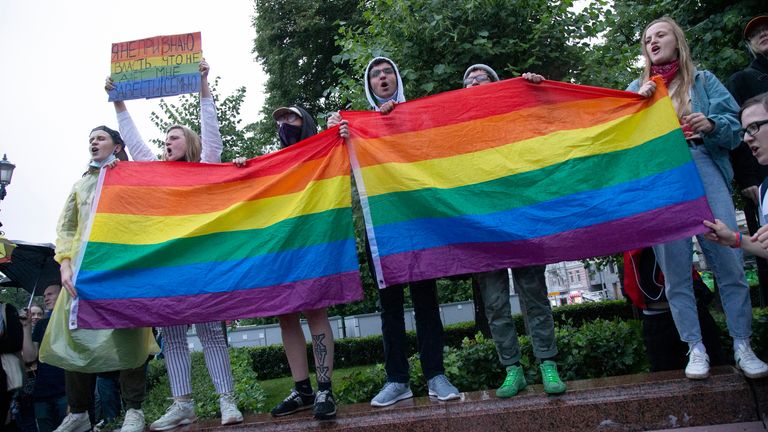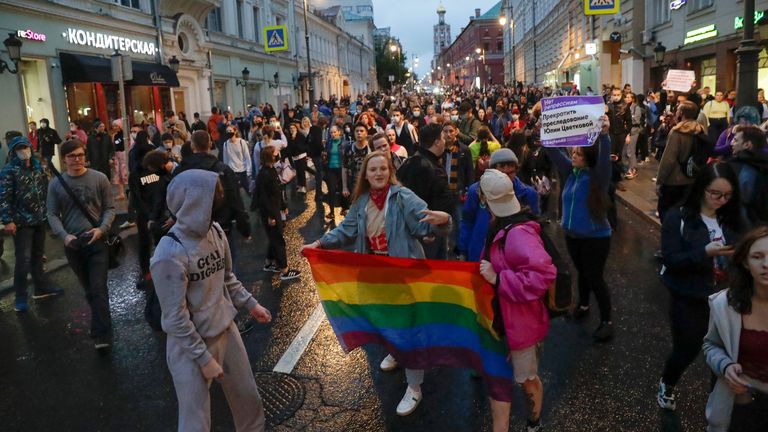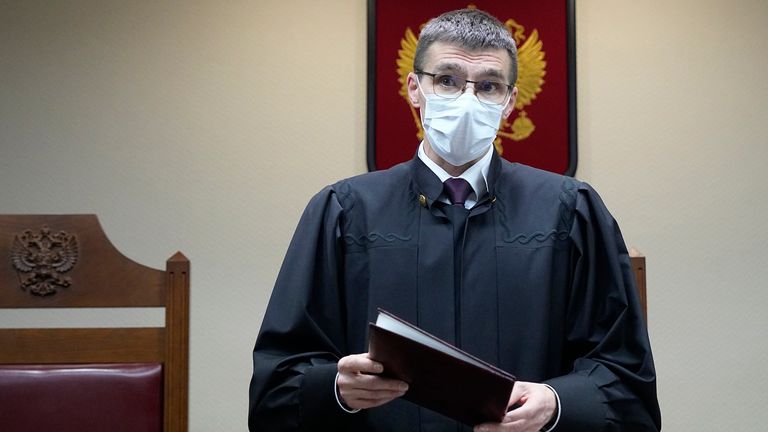
Russian forces have raided gay clubs and bars across Moscow days after the country ruled that the LGBTQ community was an extremist organisation.
Police searched venues across the Russian capital on Friday night, including a nightclub, a male sauna, and a bar that hosted LGBTQ parties, under the pretext of a drug raid, according to local media.
The raids come days after Russia’s Supreme Court banned what it called the “global LGBTQ movement”.
Eyewitnesses of the raids told journalists that clubgoers’ documents were checked and photographed by the security services.
Several LGBTQ venues have already closed following the decision, including St Petersburg’s gay club Central Station, whose owner told social media followers it would not reopen while the new laws were in place.
Activists say the court’s definition of the movement is so broad and vague that it gives Russian authorities the ability to crack down on any individuals or groups deemed to be part of the LGBTQ community.
Max Olenichev, a human rights lawyer who works with the Russian LGBTQ community, says the ruling effectively bans organised activity to defend the rights of LGBTQ+ people.
The court ruling is the latest step in a decade-long crackdown on LGBTQ rights under Russian President Putin.
In 2013, the Kremlin adopted the first legislation restricting LGBTQ rights, known as the “gay propaganda” law, banning any public endorsement of “non-traditional sexual relations” among minors.
Last year, Mr Putin extended this law to include adults, effectively banning public support for LGBTQ people entirely.
Additionally, in 2020, constitutional reforms pushed through by Mr Putin included a provision to outlaw same-sex marriage.
Another law passed this year prohibited any “medical interventions aimed at changing the sex of a person,” as well as changing one’s gender in official documents and public records.
Despite these law changes, Russian authorities reject accusations of LGBTQ discrimination.
Earlier this month, Russian media quoted deputy justice minister Andrei Loginov as saying that “the rights of LGBT people in Russia are protected” legally.
“It is clear for us that they’re once again making us out as a domestic enemy to shift the focus from all the other problems that are in abundance in Russia,” said Olga Baranova, director of the Moscow Community Centre for LGBTQ Initiatives.
She also said many people in the LGBTQ community will consider leaving Russia before they become targeted.
The Supreme Court case is classified, so it remains unclear how LGBTQ activists and symbols will be restricted.
In an interview shortly before the most recent law change passed, Alexei Sergeyev, an LGBT activist in St Petersburg, said activities such as psychological and legal support, or even “meetings where you can just sit and drink tea”, would be driven underground, depriving many LGBTQ people of support.
He added: “They will either commit suicide or simply be in some terrible state – their life will be shortened and their health will deteriorate, they will drink and smoke more, and so on, somehow trying to escape from this reality.”


